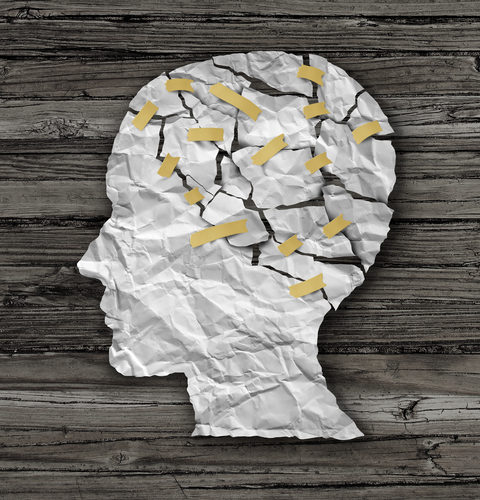Crack cocaine is an illicit stimulant that is created by mixing pure cocaine powder with baking soda and boiling the mixture in water. When the water evaporates, it leaves a solid substance that can be broken up into smaller pieces known as crack “rocks.” While cocaine powder is usually inhaled through the nose or injected, crack is most commonly smoked with a pipe or other drug paraphernalia. Crack emerged as an alternative to cocaine because it delivers a strong and immediate high but is considerably less expensive. However, crack highs do not last as long as cocaine highs, and users can quickly find themselves consuming large quantities of crack in short periods of time. The 2015 National Survey on Drug Use and Health placed the number of current American crack users aged 12 and over at nearly 400,000 — approximately one-fifth of the survey’s estimated 2 million current cocaine users.
EFFECTS OF CRACK ADDICTION ON THE BRAIN AND BODY
As a stimulant drug, crack highs result from a sudden, dramatic increase in brain activity brought on by inhaling crack smoke. Crack is known to increase production of substances in the brain called neurotransmitters, which are chemicals that your brain uses to trigger your reactions to stimuli. The main neurotransmitters associated with crack use are serotonin, norepinephrine and dopamine. Serotonin is responsible for regulating moods and sleep patterns — in the presence of crack, the serotonin spike can make you more reactive to emotions or situations. Norepinephrine is important in adrenaline production, which raises your heart rate and provides a sharp burst of energy. And dopamine is usually credited with boosting rewards pathways, which means it controls the highly addictive sensations of pleasure and euphoria.
This combination of effects leads to a short, intense high characterized by drastic mood swings, erratic behavior and high energy. The spike in dopamine, combined with the sudden drop after the high wears off, makes crack the kind of drug that users crave as they try to recreate or maintain those feelings of euphoria. Over time, your body builds up a tolerance to crack so that you need to use more to feel the same high; this becomes physically harmful as the continued rushes of adrenaline take a toll on your heart and blood vessels. Eventually, you grow dependent on the drug to feel happy or energetic at all. This dependence and the resulting compulsive desire to abuse crack is where addiction enters the picture.


TREATING CRACK ADDICTION
The effects of crack are like a wave: in the span of a few minutes, your brain floods with good feelings of happiness and energy. Then, these feelings just as quickly fade as the wave of emotions rolls back out and leaves you dispirited and drained. Withdrawal symptoms often include depression, anxiety, exhaustion and irritability. Resisting the urge to use crack to fight off these symptoms can be very difficult; treating crack addiction requires willpower and constant care.
At The Springboard Center in Midland, TX, we know how difficult it can be to break this habit. If you or your loved one are struggling with addiction to crack, it is vital that you fully commit to recovery — we want to make that commitment possible by tailoring our programs to your needs. Our options include:
- Medically-assisted detox and withdrawal management
- Residential treatment
- Intensive outpatient treatment
- Individual and group therapy
Our combination of medical care and therapy means that you can make a full recovery when you choose treatment with us. We are prepared to help your body heal first so that you can then focus on building your mental strength to resist relapse in your daily life.
CONTACT THE SPRINGBOARD CENTER
Springboard is proud to be the premier addiction treatment center for the Permian Basin region of Texas, New Mexico and Oklahoma. We treat men and women over the age of 18 for addiction to drugs and alcohol, and we can offer medically-assisted detox at our facility and in partnership with local healthcare centers. If you or your loved one is struggling with addiction, contact us to find out if our programs are right for you. Call us today at our office in Midland, TX 432-620-0255 to learn more about the resources available to you during your recovery.

